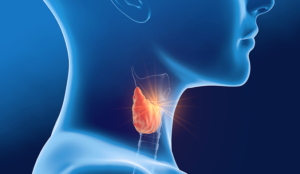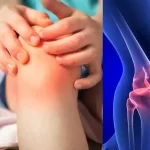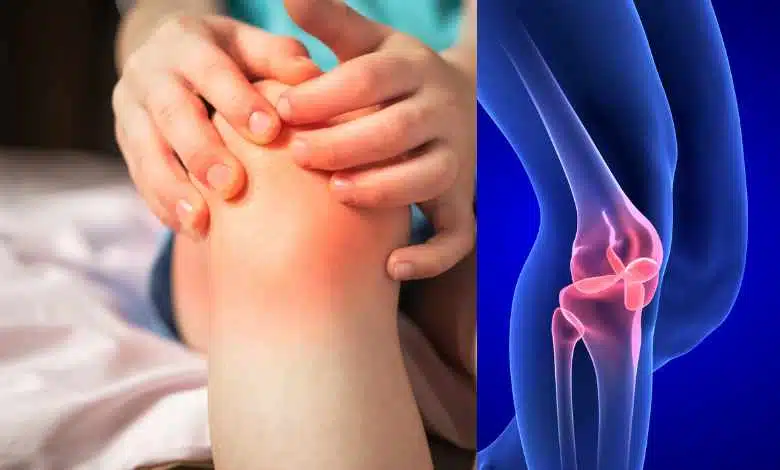Steps To Caring for the Thyroid Gland
When caring for the thyroid gland, understand that it is targeted at ensuring that the thyroid needs care so as to promote good functioning and prevent thyroid problems.
The thyroid gland is located at the front of the neck. It works silently and quite inconspicuously and just like the other notable body parts, it also needs care to improve and promote good functioning, just as stated on the first paragraph.
In this article, we’ll discuss some of the best ways to avoid thyroid problems such as, as in:
- Diet
- Avoiding radiation
- Avoiding tobacco
- Watching out for certain medications
We’ll also take a look at the main thyroid diseases known.
Diet as in Caring for the thyroid gland
It is known that the diet is the primary source of iodine for the body. In essence, in order to function properly, the thyroid needs 150 ug of iodine every day, 220 µg for pregnant women.
As it is, between 2 – 3 of iodized salt on a daily provides this amount of iodine.
More importantly, it is imperative to note that both an insufficient level and an excess of iodine in the diet can cause thyroid problems or disorders. Let’s take a look at the iodine deficiency in diet and the excess of iodine in the diet.
Iodine deficient diet: In older individuals, it manifests as goitre (increase in the size of the thyroid). In children, iodine deficiency slows growth and mental development.
Excessive iodine in the diet: Proper functioning of the thyroid gland makes it easier to assimilate only the needed amount of iodine. However, excess iodine does not cause any disorders. But, when there is thyroid inflammation (a certain level of thyroiditis), and excess of iodine can cause hyperthyroidism.
The following are the foods rich in iodine:
- Kelp or kelp seaweed
- Other seaweed
- Fish
- Some countries do enrich their salt, milk, bread with iodine.
The following are the foods low in iodine.
- All foods raised in mountainous areas where the ground has low iodine levels
The following foods reduce iodine absorption:
- Broccoli and other vegetables in the crucifer family
- Cauliflower
- Cabbage
- Yam
- Taro and bamboo shoots contain substances that reduce iodine absorption in the intestines.
In essence, in order for these foods to produce an iodine deficiency they would need to be consumed regularly and in very high amounts
The following foods promote or improve iodine absorption:
- Foods that are rich in vitamin A and vitamin E.
Avoid Radiation
In caring for the thyroid gland, avoiding radiation is one of the measures needed to be carried out in order to prevent thyroid problems.
This is because exposure of the neck or head to ionizing radiation especially during childhood is a risk factor for thyroid cancer.
As a result, thyroid-damaging radiation can come from the following;
- Radioactive rain, like the 1986 Chernobyl (Ukraine) accident, or after an atomic bomb attack. However, in case of a nuclear accident with radioactive iodine emissions, potassium iodide pills are recommended so as to protect the thyroid gland. This is one of the most important steps to caring for the thyroid gland. The recommended daily dose is 130 mg for teens, adults and pregnant women, 65 mg for children from 3 – 11 years of age, and 32 mg for 3 years of age and under.
- X-Rays: It is noteworthy that radiation doses are somewhat low, but cumulative. Additionally, it is estimated that after ten panoramic x-rays of the jaw (orthopantomography) without protection, the risk of thyroid cancer increases significantly.
- Radiation therapy given for another type of cancer without protecting the thyroid area. In the middle of last century, children and young people received radiation therapy for treatment of acne, tonsillitis, growths and ringworm. However, children who were exposed to this radiation have a high risk of developing thyroid cancer as adults.
Avoid Tobacco
Avoiding tobacco is another step to caring for the thyroid gland. It has been demonstrated that tobacco use promotes the development of Grave’s disease (hyperthyroidism) in people with genetic predisposition.
Furthermore, eye complications caused by hyperthyroidism are much more common in smokers than in non-smokers.
Effects of Certain Medications
It is important to watch out for certain medications. Caring for the thyroid gland is quite imperative as some medications can affect thyroid function as a side effect.

Lithium salts: These are used to treat manic-depressive bipolar disorder. Over the long term, they decrease thyroid hormone production.
Interferon or Interleukin: As medications used to treat hepatitis, multiple sclerosis and some types of cancer, they can affect the thyroid function adversely.
Amiodarone: It is used to treat cardiac arrhythmias, but can cause hyperthyroidism or hypothyroidism.
In essence, if any of these medications are required, their potential side effects on the thyroid must be considered.
Main Thyroid Disease Known
Thyroid cancer: This can be seen as a lump on the thyroid that is usually painless. Surgical treatment brings good results. However, diagnostic testing must be used to determine if the nodule is benign or malignant.
Goiter: It is enlargement of the thyroid gland. In many cases, it is the result of a diet low in iodine.
Hyperthyroidism: This is excessive hormone production in the thyroid gland. In 75% of cases, hyperthyroidism is the result of hereditary Grave’s disease. It manifests as anxiety, tachycardia, trembling, hair loss and bulging eyes. It is most common in women between the ages 40 – 50.
Hypothyroidism: This is insufficient hormone production in the thyroid gland. It manifests as fatigue, weight gain, depression and increased cholesterol levels. It is most common in women beginning at 55 years of age.
De Quervain’s Thyroiditis: This is inflammation of the thyroid due to a viral infection. It manifests as cold symptoms accompanied by neck soreness and hyperthyroidism. It tends to resolve after a few weeks without any need for treatment.
Hashimoto’s Thyroiditis: Autoimmune thyroid inflammation. It can be seen as a slow-growing goiter and hypothyroidism alternating with phases of hyperthyroidism.

A graduate of Computer Science and Information Management Technology. Diploma – Caregiving, Certificates – Dementia and Diabetes Awareness and Management. A researcher, blogger, songwriter, singer and acoustic guitarist. Born in an environment where natural talents such as healing are imparted at our natural birth. This natural talents of healing is the result of our genetic inheritance and the training from family environment.












